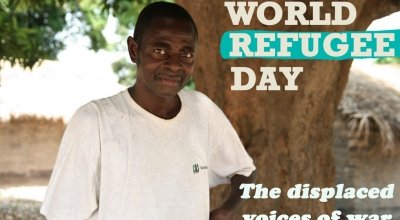
Read our 2023 annual report

Knowledge Hub
From beneficiary to customer: paying for water services in DRC
Learn how villagers in the Democratic Republic of Congo have become paying customers of a local water source to ensure the sustainability of the service.
In the rural village of Mande, in the south-eastern province of Tanganyika in the Democratic Republic of the Congo (DRC), households pay the equivalent of €0.40 per month, or an equivalent value in goods or services, to access clean water. This contribution allows villagers to transition from beneficiaries to customers, and also enables the maintenance and repairs of the village water point.
Concern Worldwide constructed a water point in Mande village in 2015 within the framework of the DFID-funded DRC WASH Consortium. Prior to the arrival of the water point, the only water source in the village was a traditional well which was used by community members and animals alike. Thankfully, the water point is now fenced and villagers take great responsibility in maintaining it – after all they are now paying customers.
The Water Management Committee
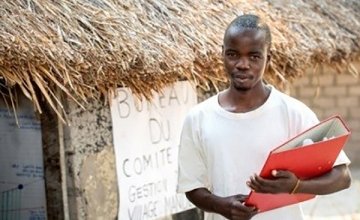
The monthly contribution from villagers’ finances the maintenance of the water source, and the village Water Management Committee is responsible for its management. The committee meets on a monthly basis to assess the progress according to the targets set in the business plan for the water point. Each Water Management Committee is encouraged to have a gender-balance on the committee, to ensure that women’s voice is represented and included in all planning and development of water services.
Eric Nsenga, a resident of Mande village, is president of the Water Management Committee. He describes how the committee employ tools and procedures to ensure that the committee and the water point function properly. He details how the committee members are elected democratically by the community and their names are displayed on a chart pinned to the wall of the committee’s office.
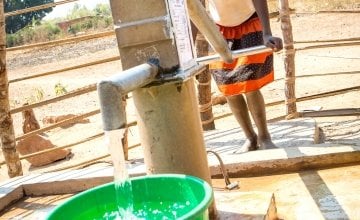
Affordable but sustainable prices
Committee treasurer, Kyungu Ngoy, is responsible for the financial management of the committee. She oversees the daily accounting, registering every transaction, incoming and outgoing in the cash book. Kyungu, and Célestin are responsible for lodging the 500 FC paid by community members and providing them with a token that gives them access to the water point for the month.
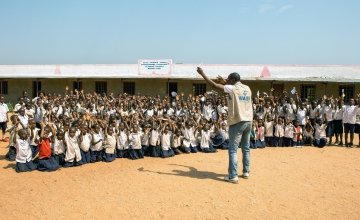
The life-cycle costs approach
The decision to fix the price at 500 FC per month was based on an economic analysis done by the community on their ability to pay the contributions, but taking into account the vulnerable members, such as people with disabilities, who are exempted to pay the monthly contribution.
This fixed price takes into account not only the cost of operating and maintaining the well, but also the cost paying for the repair and the purchase of spare parts when needed. In programming terms this is known as the “life-cycle cost approach” and is promoted by the DRC WASH Consortium to promote the sustainability of water points in rural villages.
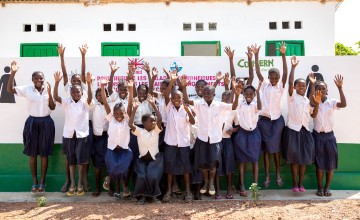
Long term benefits
President of the Water Management Committee, Eric, admits that applying the life-cycle cost approach has been a learning process for the community. However, he is confident that villagers are convinced of the need to invest as they realise that their contribution guarantees good use and maintenance of the water pump. It also helps to reduce dependency on international NGOs or aid agencies for assistance.
Eric explains how the committee can afford to buy tools, such as padlocks or water containers, with the villagers’ monthly contributions and with the surplus money the committee can invest in income generating activities. In June, for example, the community invested in the purchase of a considerable amount of smoked fish from the local market, which is located at 15km from the village. The committee then sold it back to the village at a fair price, which generated more revenue for the management of the water point.
Concern project manager for WASH Felix Kabemba works with communities in Manono, ensuring that they understand the long term benefits of water point installations.
Young and old people of the Mande community understand now the concept of the life-cycle approach of a hydraulic infrastructure, and this understanding is crucial to ensure the sustainability when they decide to invest as a community in a water point.”
Read more





